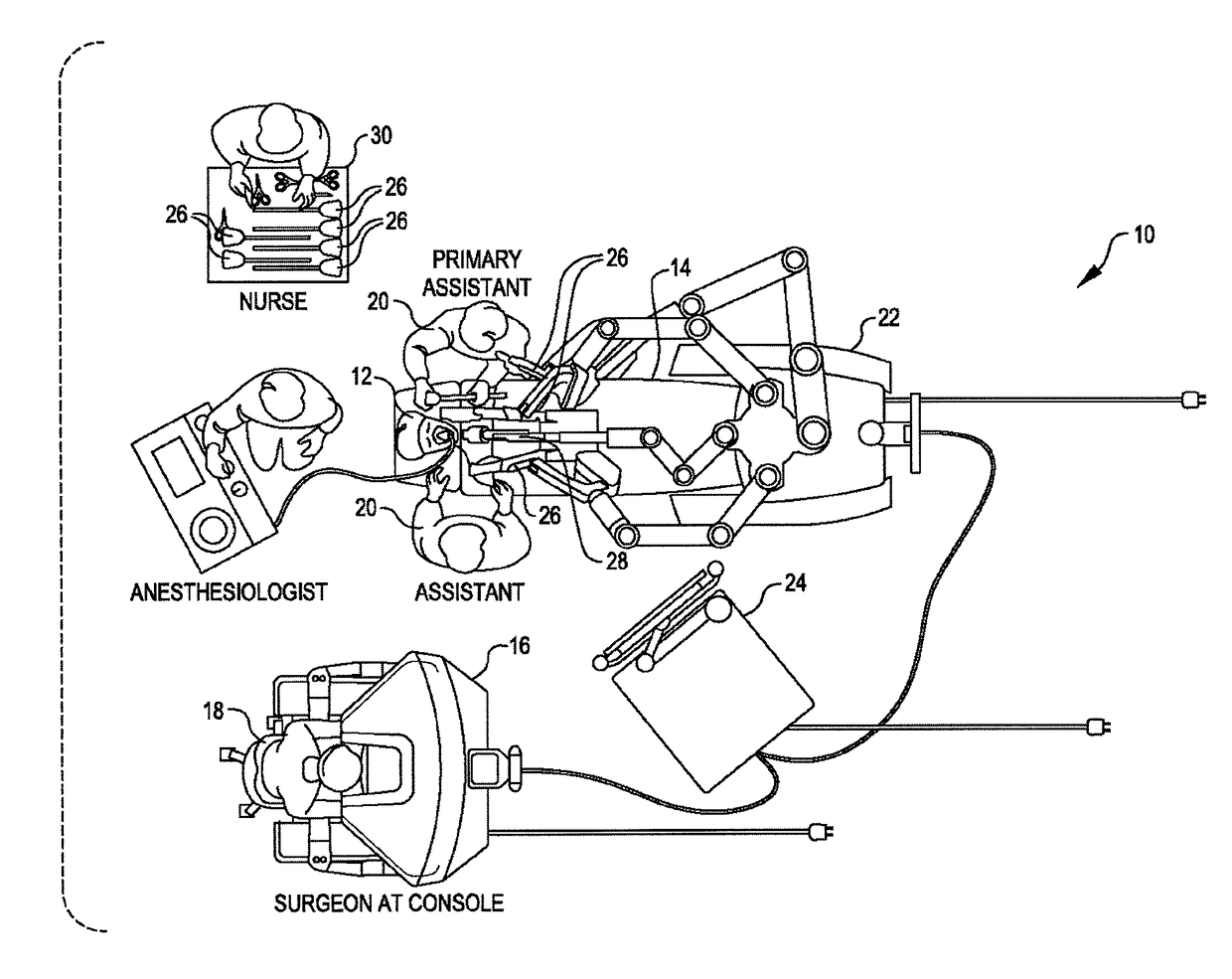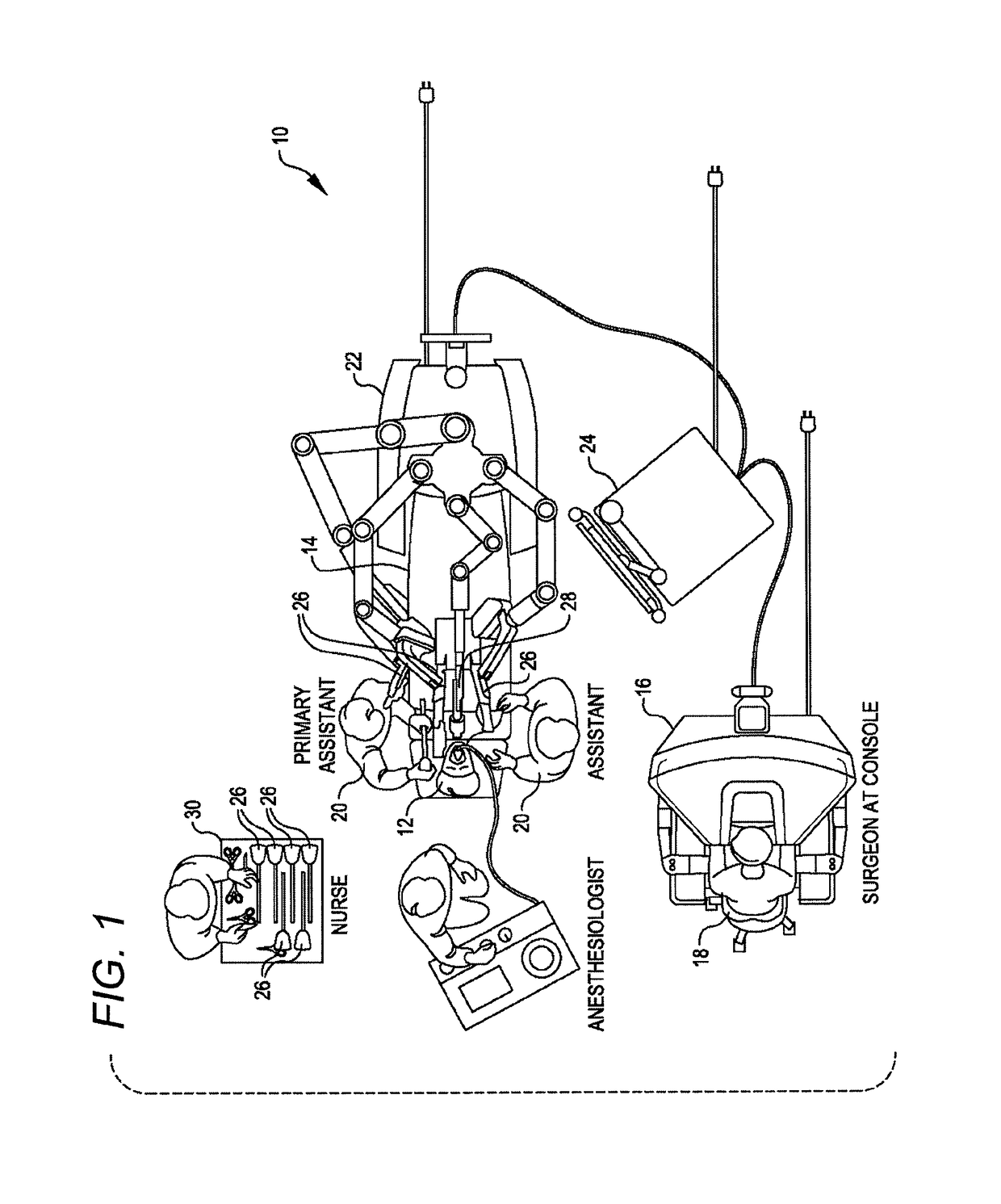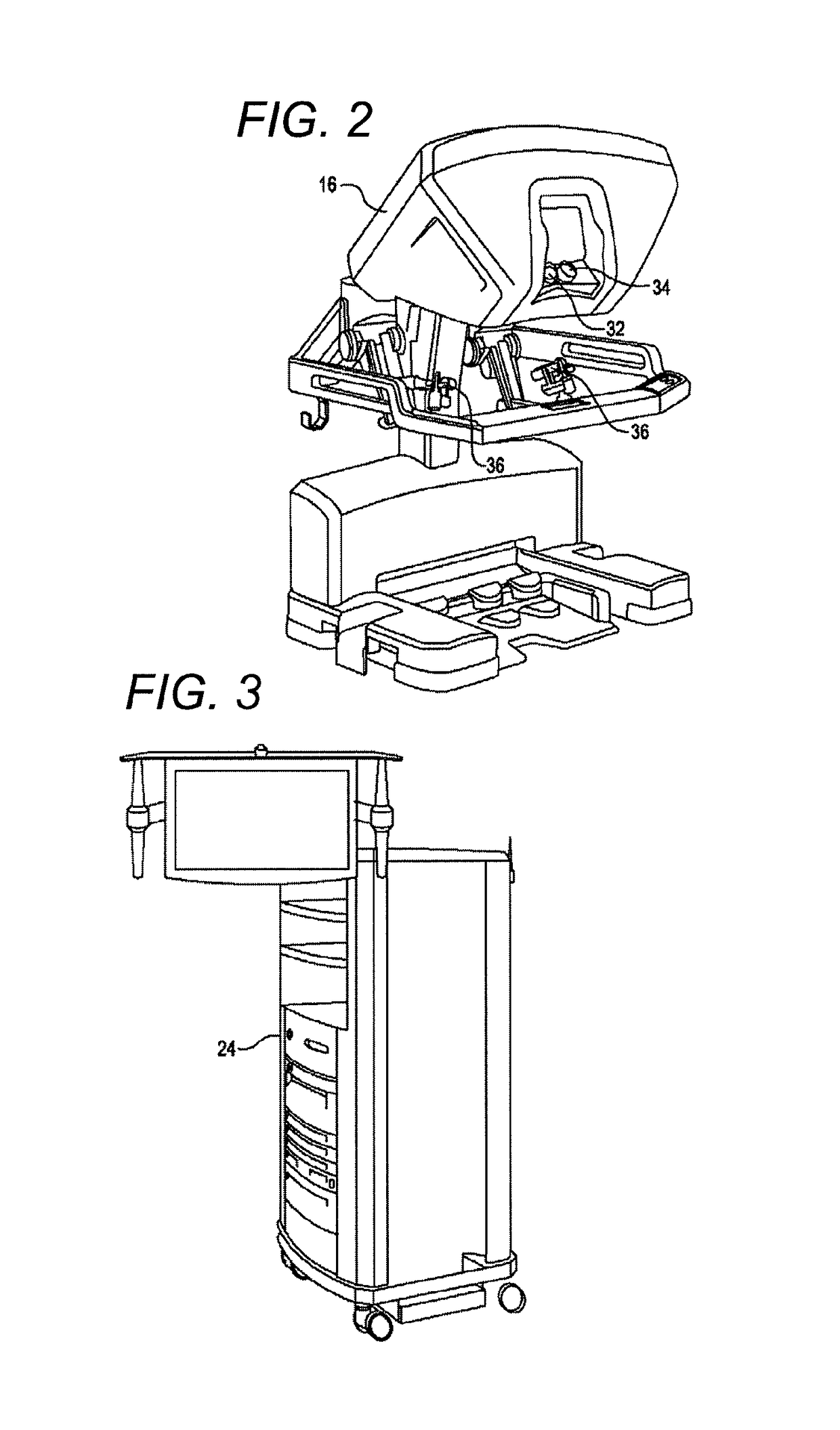Automatic push-out to avoid range of motion limits
a push-out and automatic technology, applied in the direction of machine supports, applications, surgical instruments, etc., can solve the problems of still being play or limited movement of the joint, and the control unit may delay the application of the joint drive or brake system for at least a delay duration
- Summary
- Abstract
- Description
- Claims
- Application Information
AI Technical Summary
Benefits of technology
Problems solved by technology
Method used
Image
Examples
Embodiment Construction
[0064]In the following description, various embodiments of the present invention will be described. For purposes of explanation, specific configurations and details are set forth in order to provide a thorough understanding of the embodiments. However, it will also be apparent to one skilled in the art that the present invention may be practiced without the specific details. Furthermore, well-known features may be omitted or simplified in order not to obscure the embodiment being described.
[0065]The kinematic linkage structures and control systems described herein are particularly beneficial in helping system users to arrange the robotic structure of a procedure on a particular patient. Along with actively driven manipulators used to interact with tissues and the like during treatment, robotic surgical systems may have one or more kinematic linkage systems that are configured to support and help align the manipulator structure with the surgical work site. These set-up systems may be...
PUM
 Login to View More
Login to View More Abstract
Description
Claims
Application Information
 Login to View More
Login to View More - R&D
- Intellectual Property
- Life Sciences
- Materials
- Tech Scout
- Unparalleled Data Quality
- Higher Quality Content
- 60% Fewer Hallucinations
Browse by: Latest US Patents, China's latest patents, Technical Efficacy Thesaurus, Application Domain, Technology Topic, Popular Technical Reports.
© 2025 PatSnap. All rights reserved.Legal|Privacy policy|Modern Slavery Act Transparency Statement|Sitemap|About US| Contact US: help@patsnap.com



